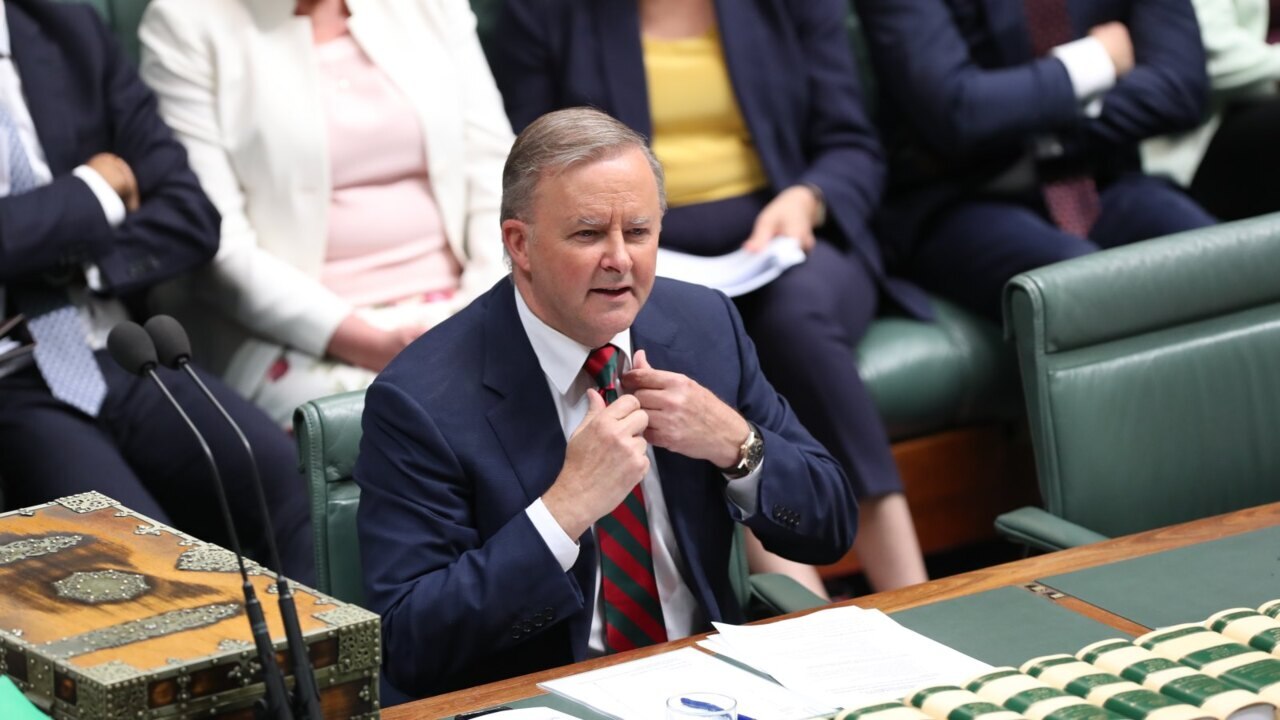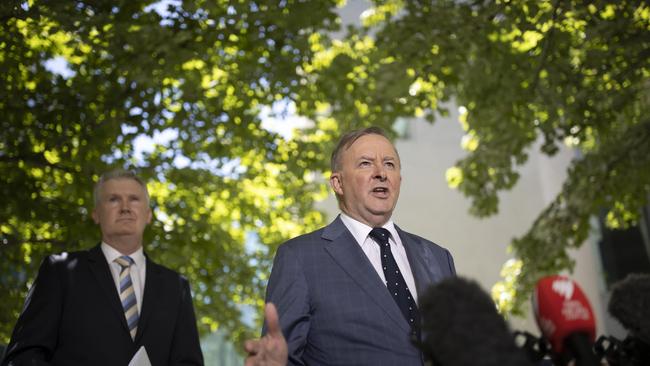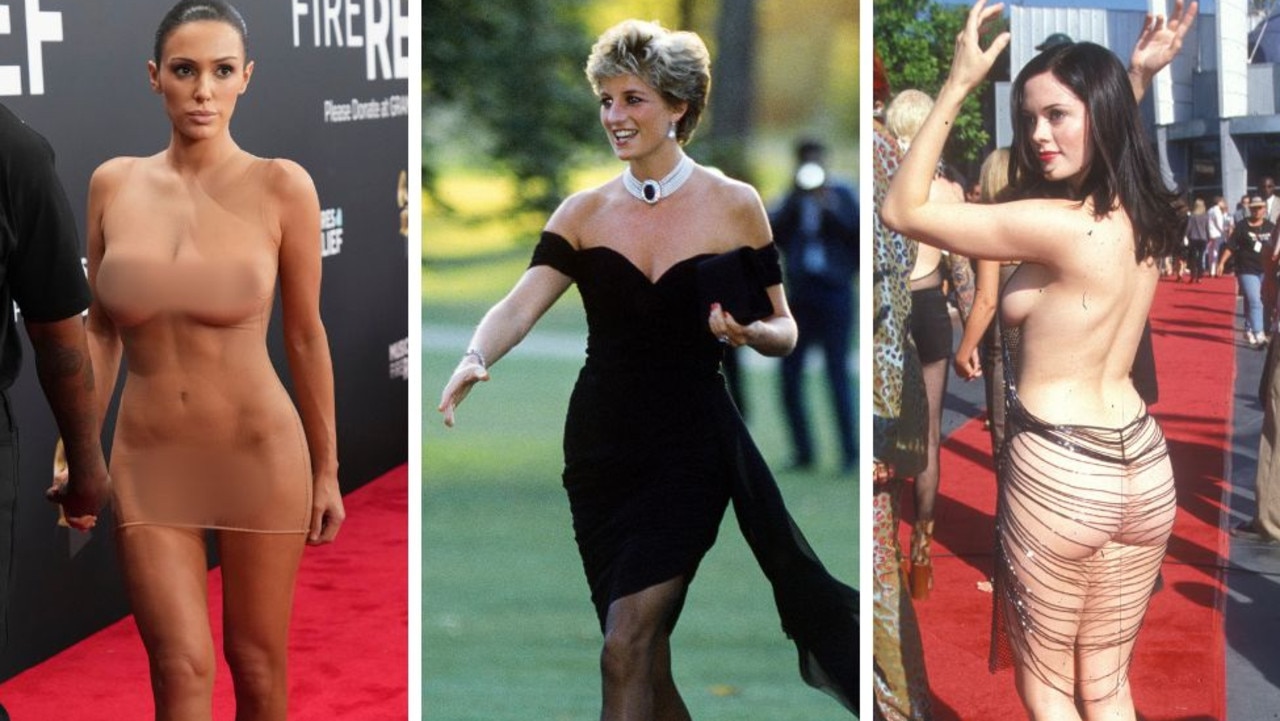Matthew Abraham: Elect a leader who can do the substance and theatre of politics
A former Christies Beach kid wrote a book called How to Win an Election. Mali and Albo need a copy, writes Matthew Abraham.

Opinion
Don't miss out on the headlines from Opinion. Followed categories will be added to My News.
As a little tacker, Christine Wallace’s playground had no swings, slippery dips or monkey bars.
Instead, steel tanks brimming with petrol, oily pipes and greasy ladders were her special play space. Her dad, Arch Wallace, was an environmental and safety engineer at the now sadly abandoned Port Stanvac oil refinery, often called out in the dead of night to organise emergency mop-ups of oil spills.
Young Chris even had her own hard hat.
She went to Christies Beach primary and high schools, knocking back a scholarship at the exclusive Walford Anglican School for Girls on political grounds. Oh well, Chris has always been more hard hat than straw hat.
Christies Beach was the beachhead for her career as an influential press gallery journalist, author and academic. She’s currently an Associate Professor at the Faculty of Business, Government and Law at the University of Canberra.
Her latest book is called How To Win An Election and it’s been widely suggested somebody should buy a copy for federal Labor leader Anthony Albanese.

The potently lacklustre “Albo” isn’t the only Labor leader who needs to read the book if he’s to stand the slightest chance of leading Labor to victory.
South Australia’s Opposition leader Peter Malinauskas, or “Mali” to his mates, needs his own copy.
If enough of his colleagues read it, some might even begin wondering if they need a new leader.
The smart money says Labor can’t win the March 2022 state election. That’s wrong.
Labor can win in 2022, but not if it keeps doing what it’s been doing for the last three years. It’s putting us to sleep.
The only memorable event from the Opposition last year was the day Malinauskas got knocked out stone cold in a footy game, and even he can’t remember much of that day.
Wallace’s book is short, broken into 10 punchy chapters, accurately described by journalistic giant Laurie Oakes as the Ten Commandments for politicians.
And her First Commandment? Elect a leader who can do the substance and theatre of politics.
“Action is character, they say in theatre,” she writes. “We form judgments about people by observing their actions over time.”
As a politician, Malinauskas does substance. He has a strong grasp of policy detail, as does Premier Steven Marshall.
He’s overly spooked about slip-ups, choosing and qualifying and requalifying his words so thoroughly that extended one-on-one interviews are a quagmire.
When I interviewed him for the Sunday Mail marking his first year as leader, he threw me by asking if he could record our conversation, before delicately placing a small voice recorder on the table between our coffees. That was a first. So, yes, he does substance and he does caution. But he sure doesn’t do theatre.
He’ll argue Labor has struggled for media oxygen to promote its agenda from the moment the coronavirus began blotting out the sun in Australia almost 12 months ago.
Sure, but does anyone seriously think the COVID-19 factor will magically vanish this year? Now wait just a minute. Doesn’t the world need more political leaders of substance? Aren’t we all heartily sick of “theatre” and spin?
Mike Rann was tagged “Media Mike” and Nick Xenophon was famous for his quirky stunts, yet both were also politicians of substance.
Prime Minister Scott Morrison is mocked as “Scotty from Marketing” but he knows how to punch through the political fog.
Former PM Paul Keating, a man of big picture policy substance, once said he knew when to “throw the switch to Vaudeville”. Nobody ever nodded off during a Keating interview.
“Not doing the theatre of politics well enough means no one will ever know how well they do the substance of politics because no one will listen or watch to find out,” Wallace writes.
She believes it’s a basic mistake for politicians to rely on reasoned argument to sway voters because “emotion trumps reason in politics every time”.
One of the iconic images of social reform in the 70s is the black and white photo of then Labor Premier Don Dunstan holding a beer and surrounded by drinkers celebrating his ending of six o’clock closing in pubs. He didn’t need zombies doing smiling “noddies” behind him. He was surrounded by real people. You don’t need to visit the parliamentary library to work out what that photo is about.
The theatre tells the story, loud and clear.
As Wallace put it in a text exchange during the week: “Every election is winnable. Winning elections is hard.”
And she added this sting in the tail. “If your leader is lead in the saddlebags, you’re not going to win.”
Let’s call that her Eleventh Commandment.



